C-Suite Perspectives with Jesse LipsonJesse Lipson recalls the early days. He remembers graduating from Duke University with a degree in philosophy, planning to be a philosophy professor. Life, though, took a different turn.
“It all started with an idea,” said Lipson. “ShareFile started with an idea.” Lipson, a self-taught software developer, spoke at our Dec. 2018 C-Suite Perspectives at The Umstead Hotel and Spa. He built and launched his startup, ShareFile, in 2005. ShareFile is a cloud-based file sharing service that enables users to easily and securely exchange documents. “Right off the bat, I had a very data-driven approach to running a business,” he said. “A relentlessly, data-driven approach.” Lipson said there always was a nonstop focus on the customer at ShareFile. He talked about his hands-on approach, even as his team grew. “I was reading every single support request, so I could know what the customers needed,” said Lipson. He said when Florida-based Citrix acquired ShareFile in 2011, his startup had grown to 85 employees. Looking back on the merger, he’s very proud knowing that he played such a critical role in helping to bring hundreds of jobs to Raleigh. Lipson, who also co-founded HQ Communities, mentioned how excited he is to see what is happening currently with Pendo, a product cloud that provides user insight, user guidance, and user communication for digital product teams. Pendo announced on Dec. 3 that it is adding 590 jobs to its Raleigh operations. As for advice to the C-Suite Perspectives audience, Lipson recommended, “Take time to enjoy the journey. You can get wrapped up in the day to day. But it’s the stories that are much more valuable to me than the money.” He discussed the importance of building strong cultures within companies. “I think culture is a natural outflow of your core values,” said Lipson. So, what’s next? Lipson said, “I want to do it again.” He wants to build the next ShareFile. Recently, Lipson started a software company called Real Magic. Real Magic launched Levitate, which helps small businesses grow and manage their professional relationships to help drive more referral and word-of-mouth business. “We’re up to 13 employees and we’re hoping to create more great stories and jobs for Raleigh,” he said. We want to thank Lipson for sharing all of his stories and insight at C-Suite Perspectives. To see more of the conversation from that day on Twitter, you can check out the official hashtag of the event, #CSuitePers. We also want to thank all of our sponsors of C-Suite Perspectives. Without their partnership, this event would not be possible. Please join us for our next C-Suite Perspectives on Mar. 8 where we will hear from John Kane, the founder and CEO of Kane Realty Corporation.
0 Comments
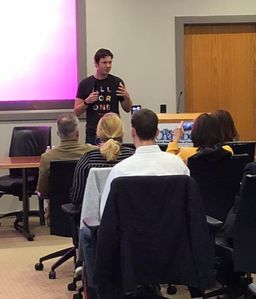 It’s been quite a month for Todd Olson. The company he co-founded, Pendo, a product cloud that provides user insight, user guidance, and user communication for digital product teams, announced on Dec. 3 that it is adding 590 jobs to its Raleigh operations. Olson, Pendo’s CEO, was alongside Governor Cooper for that announcement. Two days later, he was at the Raleigh Chamber, sharing his insight at Coffee with Todd Olson. “At my core, I’m a product person,” said Olson. “I roll up my sleeves and talk with my customers about how we can help them.” He shared his entrepreneurial story and offered advice to the audience members. “As an entrepreneur, start with something that you have firsthand experience in,” said Olson. Olson’s first venture-backed startup closed during the dotcom era. His second startup was sold to Rally Software, where Olson stayed on as vice president of products during its IPO. He then founded Pendo with fellow product leaders and technologists from Cisco, Google, and Red Hat in Oct. 2013. “As an entrepreneur, never let people tell you what’s possible or impossible,” said Olson. He reflected on the early days of Pendo. “A lot of our success is based on the fact that I first got to iterate our pitch, our marketing, and I got to figure out what the customers needed,” said Olson. He discussed the importance of having an integrated work-life experience for Pendo’s employees. “It’s not just having those values, it’s living those values,” said Olson. LinkedIn named Pendo a Top 50 U.S. Startup in 2017 and Inc. named it a Best Workplace in 2018. “Our people are absolutely critical to our success,” he said. “We set goals every single quarter. Every quarter, we go through our goals and set new goals for the next quarter.” As for the jobs and the interest in employment with his company, Olson said Pendo is receiving about 5,000 job applications each quarter. But, Olson said he always wonders about the people who don’t apply and whether they would be a perfect fit at Pendo. We want to thank Olson for taking time out of his busy schedule to share his insight with us at Coffee with Leaders. Also, thank you to Duck Donuts and Duke Energy for sponsoring this series! Our next Coffee with Leaders will be on Jan. 24 where we will host Coffee with Female Small Business Leaders. You will hear from three women whose companies were founded in the Triangle and continue to grow:
Coffee with Leaders is meant for companies with 50 employees or fewer. Space is limited. We hope to see you on Jan. 24.  For Tim Humphrey, the lessons he has learned on his corporate journey can be summed up with two very important beliefs. “Be authentic and always embrace your values, he said. Humphrey, the vice president of IBM’s Chief Data Office, shared those beliefs at the beginning of his address during our November C-Suite Perspectives. Originally from Fayetteville, Humphrey said he embraced the lessons his mom and dad taught him. “They are the foundation of my values,” he said. “My mom was an educator and my parents told me to focus on my education.” He did just that, graduating with an electrical engineering degree from NC State. He recalled working jobs to pay for school, including janitorial work and construction jobs. “I realized I’m not cut out to do very hard labor for the rest of my life,” said Humphrey. Then, he got some great advice from his college roommate. “He told me I needed to get some practical experience,” said Humphrey. Humphrey was hired as a level one call taker for IBM, talking to people and helping them fix their personal computers. He would work in various roles at IBM and Lenovo. But, Humphrey knew something else was necessary. “For the vision I had for myself, I knew I needed to pick up some business experience,” he said. IBM hired him to lead the supply chain strategy. From there, he would work his way up the ladder to his current role in the Chief Data Office. Humphrey told the C-Suite Perspectives audience about the lessons that he has learned over the years. “It is imperative as leaders that we build diverse teams,” he said. “Diversity leads to innovation and innovative companies grow their revenue, or reduce their costs, or both.” Humphrey added, “Engaged employees drive better client experiences which leads to better business results.” He also encouraged the audience to remember the importance of giving back to the community. Currently, Humphrey serves on the Wake County Boys & Girls Clubs Board of Directors and on the University of North Carolina’s World View Advisory Board. He said it is important for leaders to listen to their team members and to coach them. “Performance has to be a mindset,” said Humphrey. “You have to have a high-performance mindset if you’re going to be a leader.” To see more of the conversation with Humphrey, check out our official Twitter hashtag, #CSuitePers. We want to thank Humphrey for his great insight during C-Suite Perspectives. We also want to thank those who attended and our sponsors who made an event like this possible. Please join us for our next C-Suite Perspectives on Mar. 8 where we will hear from John Kane, the founder and CEO of Kane Realty Corporation. 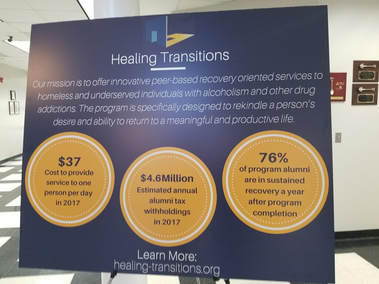 By Amanda Murphy Marketing Manager, Dewberry In the last 20 years, the population of Wake County has increased by 53 percent, according to the Wake County government website, and gains an average of 63 new residents each day. How do we accommodate this growth with a limited amount of unused land? Right now affordable housing in our area is not only losing units at a staggering rate, but is not adding the housing needed for low income families. Our tour for Human Services Day included two stops at transformational service providers in our community. We learned about the services they provide, and the great need for both affordable housing units and active community engagement to change the conversation around poverty. Triangle Family Services Our first stop on the tour was a visit to Triangle Family Services, an 81-year-old human services agency providing services related to family safety, financial stability, and mental health. They typically run 10-12 programs at a time on a $3.4-million budget, are comprised of 70 staff members, and serve approximately 5,000 clients of all ages each year. They defined for us ACEs, a term meaning adverse childhood experiences (e.g. trauma, child abuse, war) and explained that a lot of folks in our community are dealing with the effects of ACEs in their adult lives and don’t have a way to break the cycle without intervention. They set client-centered goals, collaborate with clients, use evidence-based practices, and wrap around care because most of their clients don’t have just one issue and need the total human services experience. Triangle Family Services was a welcoming environment that avoids triggers for folks who have experienced trauma. We discussed issues unique to Raleigh that they were aware of, including the shortage of affordable housing in our area. I particularly was interested in hearing about how they work with the courts to keep families together by providing services to people who are at risk of losing their families. They also work with Wake County Child Protection Services and provide safe visitation environments for families. They believe family separation equals trauma, and strive to keep families together. With 86 percent of their clients labeled as low-income, the system is simply overburdened and they are often forced to turn people away. Triangle Family Services receives its funding by way of city, county, state, and private entities. Healing Transitions – “As many times as it takes” Our second stop on the tour was to a “brotherhood and sisterhood working to change lives” by providing food, shelter, and support for alcohol- and drug-addicted community members. The organization began in the 90s as a result of many living on the streets with drug and alcohol additions, and being were turned away from shelters. They provide non-medical detox service on demand, refusing to turn away folks in need, with a goal of setting individuals on a path to be contributing members of their families and society as a whole. Their biggest reason for the success of the program is the use of peers, which allows people to see hope for themselves in those who have made it out of drug and alcohol abuse. Two-thirds of their staff are former program participants. We met their kitchen manager on our tour of the facility—a former participant in the program on the women’s campus—who talked to us about the benefits of a peer-led program and how she uses the kitchen as an opportunity to teach job skills that participants can then take out into the workforce after completing the program. They serve 225 meals at the men’s campus and more than 120 meals at the women’s campus each day. People are in this program because they want to be in the program, and typically stay in the program from one year to 18 months, and their completion rate is 20 percent. There are different stages of the program that participants work through during their stay, including added privilege and responsibility with each step. Upward mobility is a motivator for success. One-third of their revenue comes from the Wake County Board of Alcoholic Control. The rest comes from individuals, churches, and other organizations. Similar to Triangle Family Services, Healing Transitions is overcrowded and launching a capital campaign. They have a relationship with Wake County Emergency Medical Services and have a pilot program to deal with the opioid crisis, which was mentioned frequently during our tour. Poverty Simulation During our visit to Healing Transitions, Leadership Raleigh participated in an impactful, moving simulation of what is feels like to be impoverished. This was not even a sliver of what the reality is for those living in poverty, but it was an enlightening experience to help understand some of the common elements of living in poverty, including:
The room was set up with services (employer, bank, mortgage company, grocery store, pawn shop, social services, homeless shelter, etc.) along the periphery that you could visit for the cost of a transportation pass. These passes, which are likened to a bus pass for a family without a vehicle, seem innocuous, but they cost a dollar, unless you didn’t have a pass in which case it cost two dollars to obtain. Most families have three or more people, so that is three dollars each time you are attempting to go somewhere, even if the visit wasn’t fruitful because the service provider was closed. For example, our family took our three passes to get to the mortgage company because we could not leave children at home alone. When we arrived, the mortgage company was closed, so we lost those passes. Our group was given appliances, jewelry, and cameras that we could sell at the pawn shop, which we attempted to do in order to get money for mortgage, utilities, and food. Even though the value of the appliances was $100, the pawn shop would only give you $50, and if the shop was full of appliances or whatever you were selling, they wouldn’t take anything and you were stuck with an inability to sell your valuables for cash. The little sister character in our family went to school but was kicked out and went home. Because of her age, she was put in jail for being home alone. Getting out of jail was $200, which our family was struggling to afford food, so this cost was exorbitant. The thing I kept coming back to was how hard people have to work just to survive and that being poor was not a lazy man’s game. In order to get social services benefits, we were sent through so much red tape, and those benefits only covered a small portion of what we needed for housing, utilities, and food. Our family failed at our mission, we were evicted because we couldn’t afford our mortgage or utilities, landed in jail multiple times, were unable to feed ourselves, and ended up with nothing. There were families that succeeded in getting by, but those examples were scarce. I left that simulation with a better understanding, but a sick feeling in my stomach about how hard it is to survive as a low income family in our community. I also left motivated to do something about it, at a minimum to help bring awareness to the conversation about poverty and low-income housing options in our area. We have to change the conversation. Poor people are not lazy, and the simulation lasted one hour for us, each week being represented by 15 minutes of time and a whistle indicating the start and stop of the week. I do not know how people do what they do to survive, and I think it is our responsibility as leaders of our community to change the conversation. Washington Terrace and Meadow Creek Affordable Housing Communities Our final two stops on the tour included a drive through of Washington Terrace, which was under construction, and a walking tour of Meadowcreek Commons, a senior community which has been open for approximately two years. DHIC, a local non-profit founded in 1974 by the City of Raleigh, is constructing the Washington Terrace redevelopment project, including 245 units on 23 acres, which five years ago was a community in foreclosure. They have affordable housing opportunities for families, individuals, and seniors including a childcare center that can support 75 pre-kindergarten children and is run by the Methodist Home for Children. There are program services for families, a community garden, a play space partnership with Kaleidoscope and North Carolina State University. Wake County did a 20-year affordable housing plan study and found that our county currently needs 56,000 affordable housing units, and that 37,000 Wake County residents are paying in excess of 50 percent of their annual income for housing (rent and utilities), which is not sustainable. In 2009, in Wake County, incomes increased by 10 percent, and housing costs went up by 30 percent. If we can provide enough affordable housing, we can limit many unintended costs to our community, including emergency services such as hospitals and police. North Carolina added 2,600 units, limit is per capita for the state, which is not even a drop in the bucket of the affordable housing needs in our area. DHIC was asked how we can help and they said advocacy was what they needed most, but also vote for housing bonds and talk to our elected officials to help change the conversation. They are always looking for volunteer board members as well as land downtown near transportation. Housing is tied to every part of our lives. |
AuthorGreater Raleigh Chamber of Commerce Archives
July 2024
Categories
All
|
|
Greater Raleigh Chamber of Commerce
800 S. Salisbury St. Raleigh, NC 27601 |

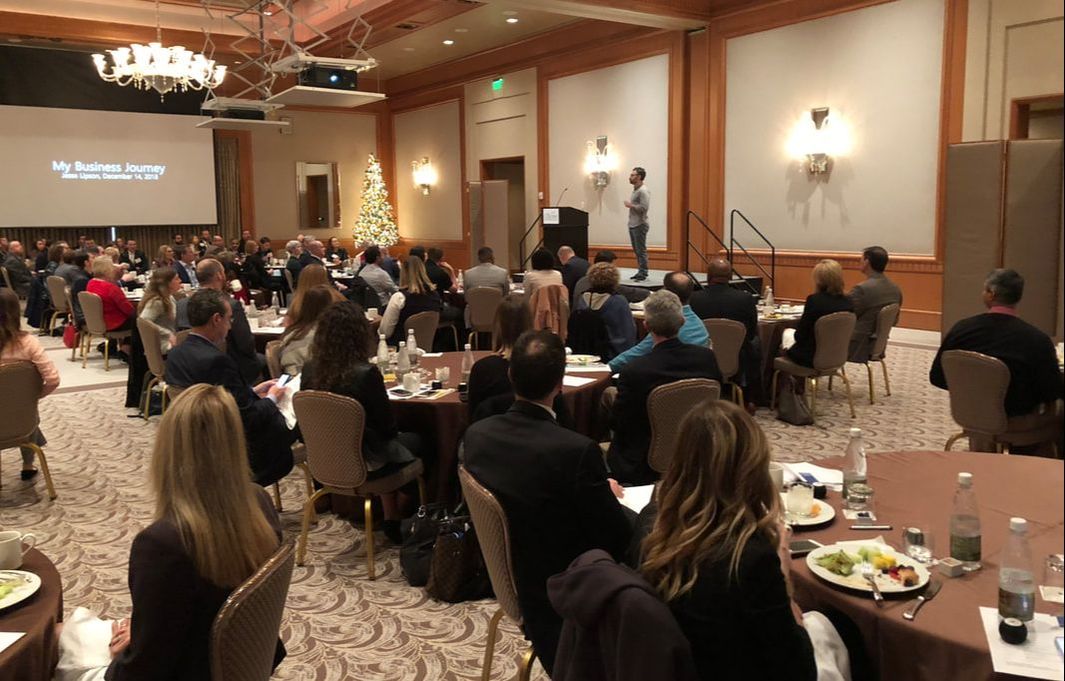
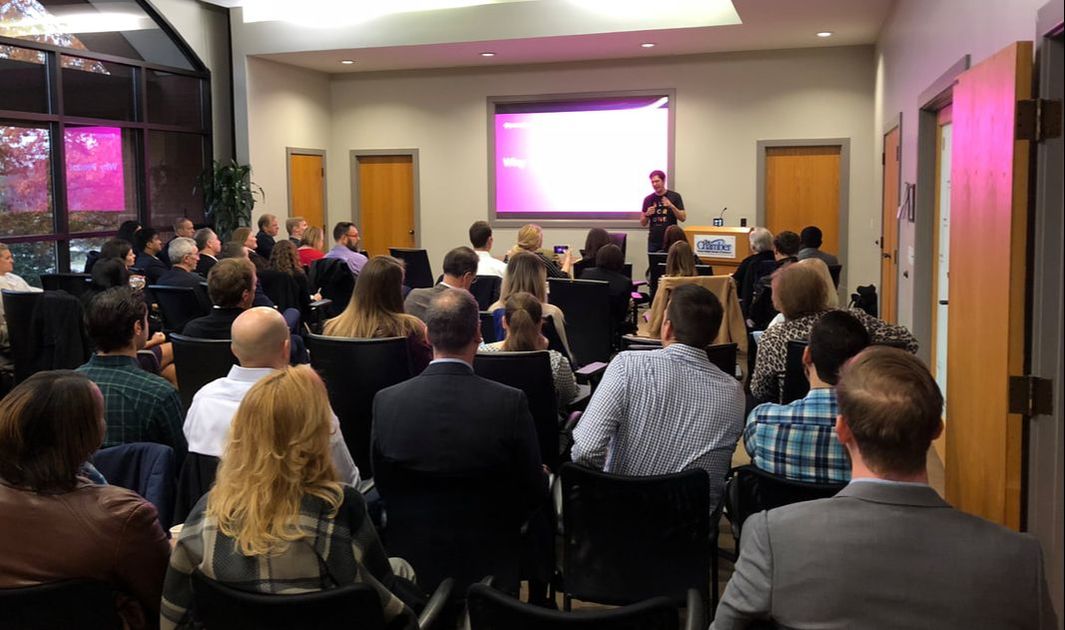
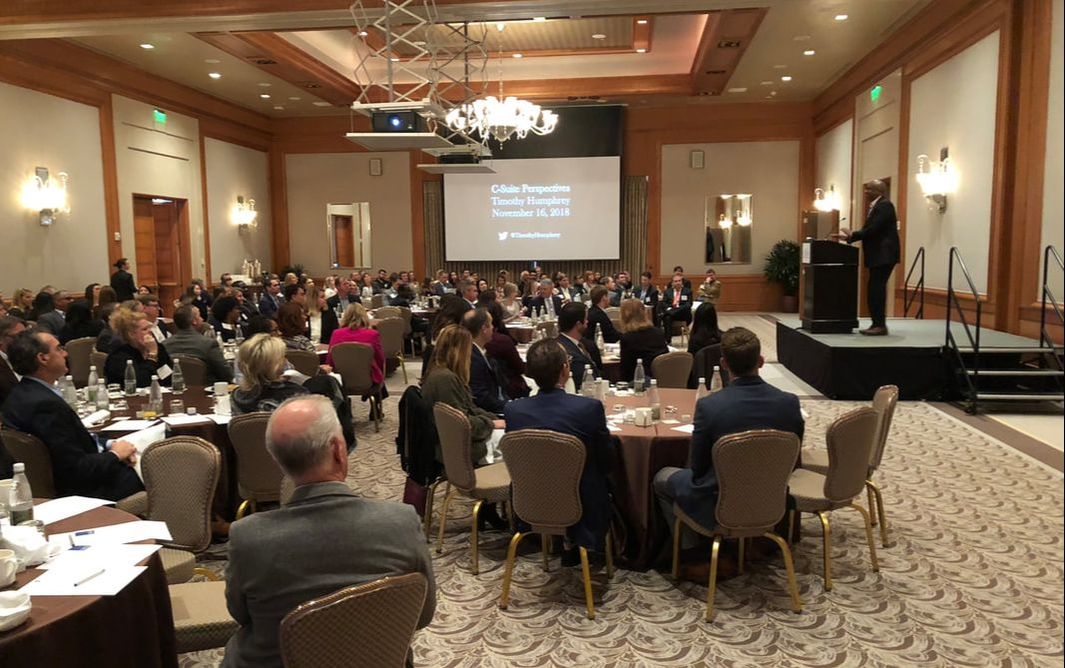
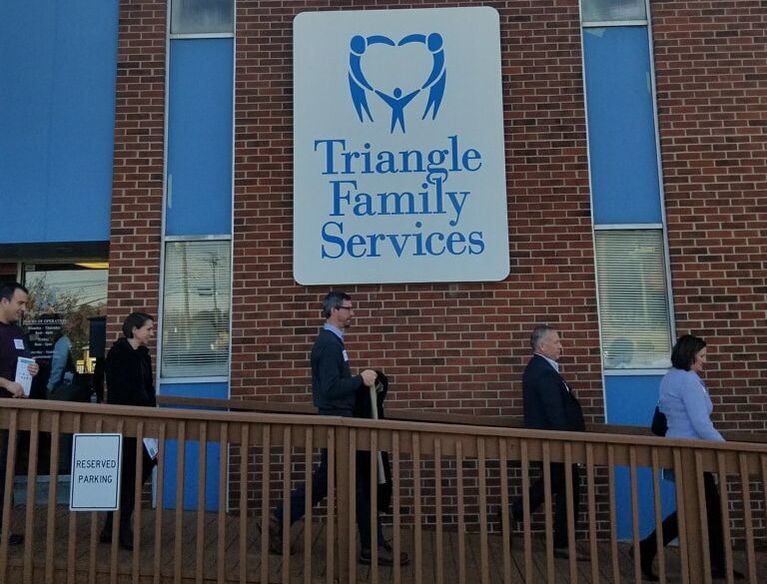

 RSS Feed
RSS Feed